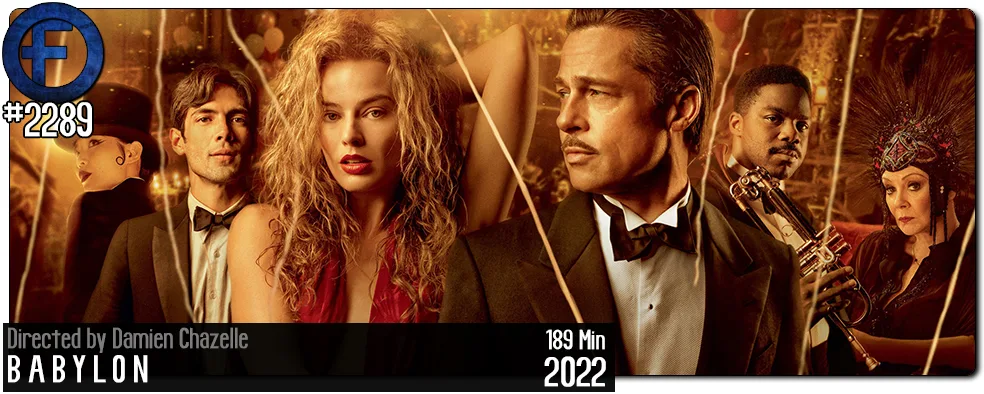Movie Review – Babylon
Principal Cast : Brad Pitt, Margot Robbie, Diego Calva, Jean Smart, Jovan Adepo, Li Jun Li, PJ Byrne, Lukas Haas, Olivia Hamilton, Max Minghella, Rory Scovel, Katherine Waterston, Tobey Maguire, Flea, Jeff Garlin, Eric Roberts, Ethan Suplee, Samara Weaving, Olivia Wilde, Spike Jonze, Patrick Fugit, Chloe Fineman, Telvin Griffin, Pat Skipper, Alexandre Chen.
Synopsis: A tale of outsized ambition and outrageous excess, it traces the rise and fall of multiple characters during an era of unbridled decadence and depravity in early Hollywood.
********
Outrageous, debauched, frenetic, confusing, ill-focused, nostalgic: all perfect adjectives to describe Damien Chazelle’s prurient love-letter to cinema, Babylon, an orgiastic bacchanalia of excess that outstays its welcome but is still a hell of a great time. Little wonder the film’s critical reception was so muted, with as many critics praising its excess as those declaring it a nonsensical mess. It is to Hollywood’s golden age what Moulin Rouge was to French bohemia, a scabrous inside peek into the sausage making that ain’t for the faint of heart. Led by a stellar Margot Robbie, a charismatic Brad Pitt and a breakout turn from Diego Calva, Babylon is a loudly declarative statement to the power of cinema; whether it makes much sense or means quite as much to everyone else, well… your mileage may vary.

Set in Hollywood in the 1920’s, wannabe starlet Nellie LaRoy (Robbie) dreams of being on set and becoming a major force in the movies. She gate-crashes a major party thrown by resident Hollywood heartthrob Jack Conrad (Pitt) with the help of Mexican immigrant and odd-job man Manuel “Manny” Torres (Calva), and inserts herself into the studio system’s meat-grinder machine; Nellie’s natural screen charisma make her an almost overnight star in the silent film era, causing jealousy among her contemporaries thanks in large part to her constant drug taking, drinking and partying. Conrad, meanwhile, is coming to terms with his imminent career slump, as the new-fangled “talkies” upend the established Hollywood system, while Nellie struggles to make the transition. As each of them charts their own path through this turbulent time in the industry’s history, the lure of the silver screen and stardom drive each in different ways.
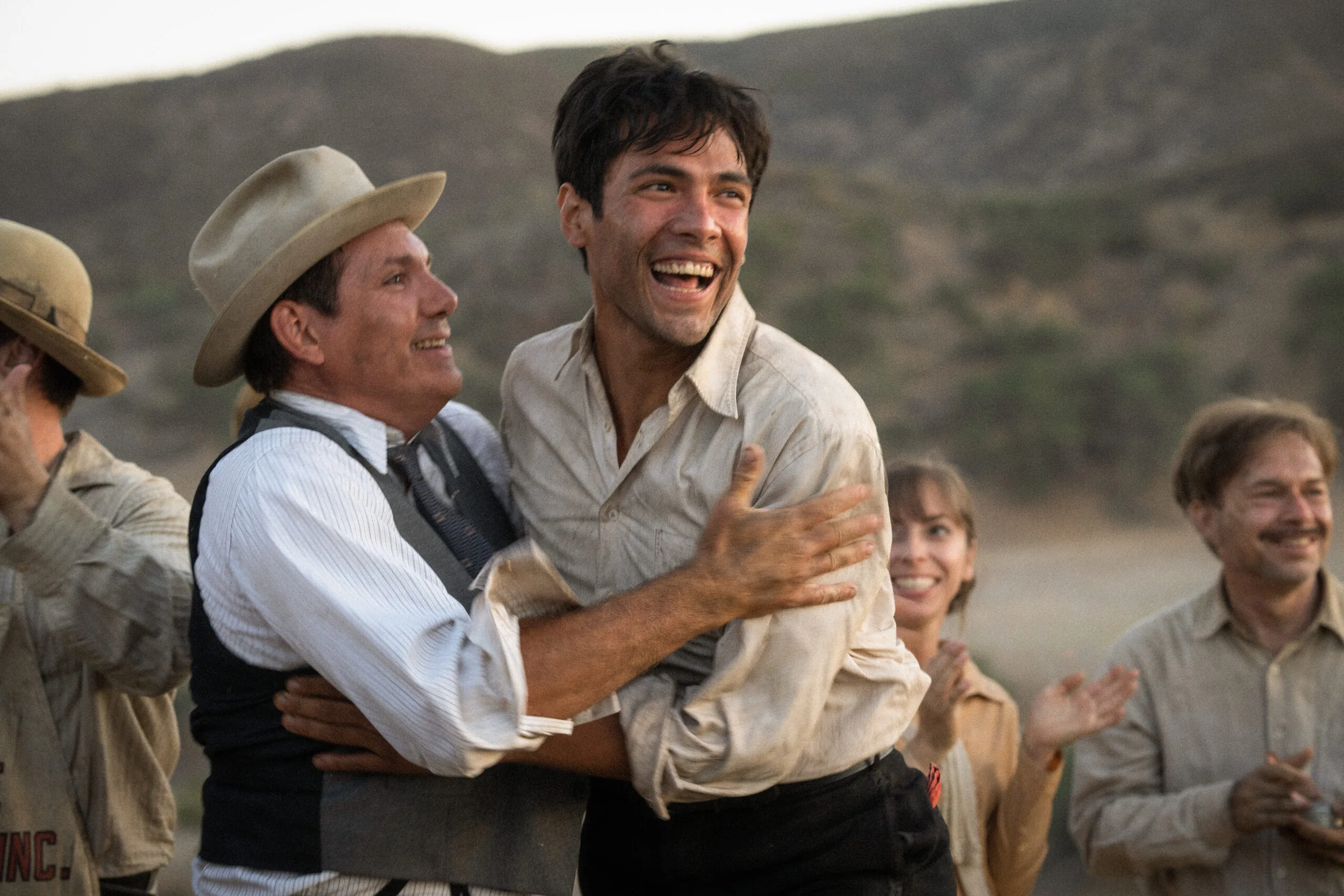
I’ll make this easy: Babylon is exactly my jam. It’s the kind of film I adore – movies about movies are like manna from heaven to me, and I could honestly have gone another hour or so into this film before I’d check my watch. Admittedly, Babylon won’t be for everyone and I acknowledge that, so please take my gushing review with the grain of salt in which I suggest that the film spoke to me on so many levels. Having now gone back into the silent era and watched a large number of them (and reviewed right here on this website) I can appreciate the backstage glimpse into Hollywood’s early successes even moreso now than were I a novice on the subject. There are a number of terrific set-pieces in which great silent movies are created through sheer budgetary extravagance and creative largesse, while the film’s depiction of the early sound era transitions are majestic and mournful in their soliloquising of a bygone era. At one point, Brad Pitt’s charismatic Jack Conrad, an avatar for the Douglas Fairbanks or John Gilbert-type of the period, finds himself at a career crossroads, before a terrific monologue about legacy by Jean Smarts’ loquacious magazine writer Elinor St John – perhaps a stand-in for the legendary silent-era gossip queen Louella Parsons – seems to set him right, and of all the things I took from Chazelle’s absolutely insane movie this was by far the standout: our lives are but fleeting, yet film is eternal. Sigh, it spoke to me.
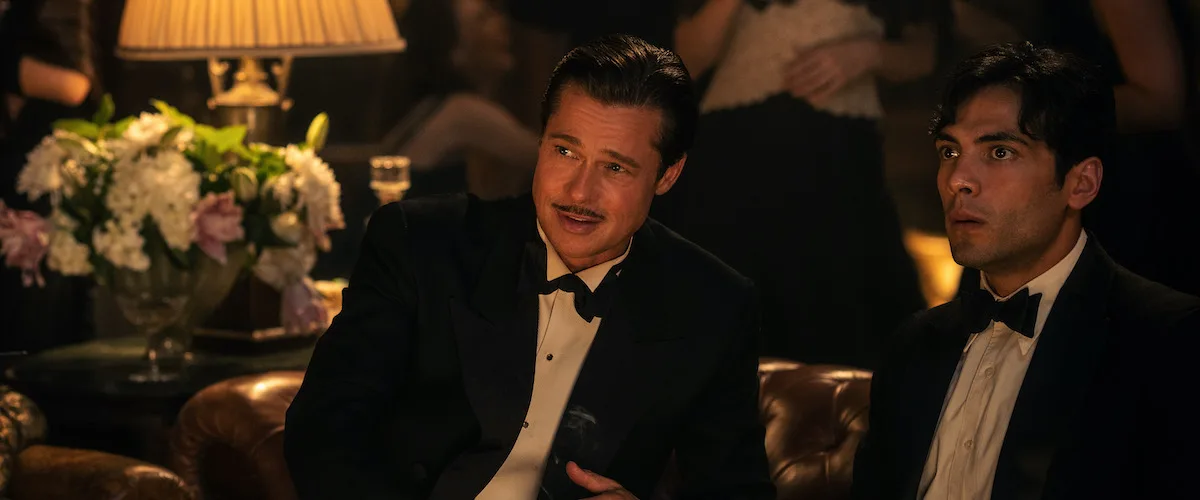
One of the best things about Babylon is just how much is crammed into its brisk three hour runtime. Yes, I called a three hour movie briskly paced, and it is. From the astonishing opening sequence in which an elephant shits liquid all over poor Diego Calva to the downbeat finale in which Torres returns to his old studio on a holiday to reminisce, noting the central characters of the film all met fates that to them must have felt overwhelmingly unfair considering their talent and wealth, Babylon is ripe with thematic material bordering on extravagant. There is a level of superficiality to the story in terms of how Chazelle and his team intertwine the story of Conrad, Nellie and Torres throughout Hollywood’s early historical landmarks, because juggling such larger-than-life characters with their own emotional arcs and story service amid the hurly-burley of the industry’s exciting, pulsating formative years is quite the task, but I think there’s enough energy here to thwart boredom or wonky moments (and there’s a couple) and give the viewer a journey they won’t soon forget. And that’s what any film is, really; a journey guided by a filmmaker who knows what he wants to show and tell, and it’s up to us to work out how much, or how little, it affects us. And Babylon certainly affected me.
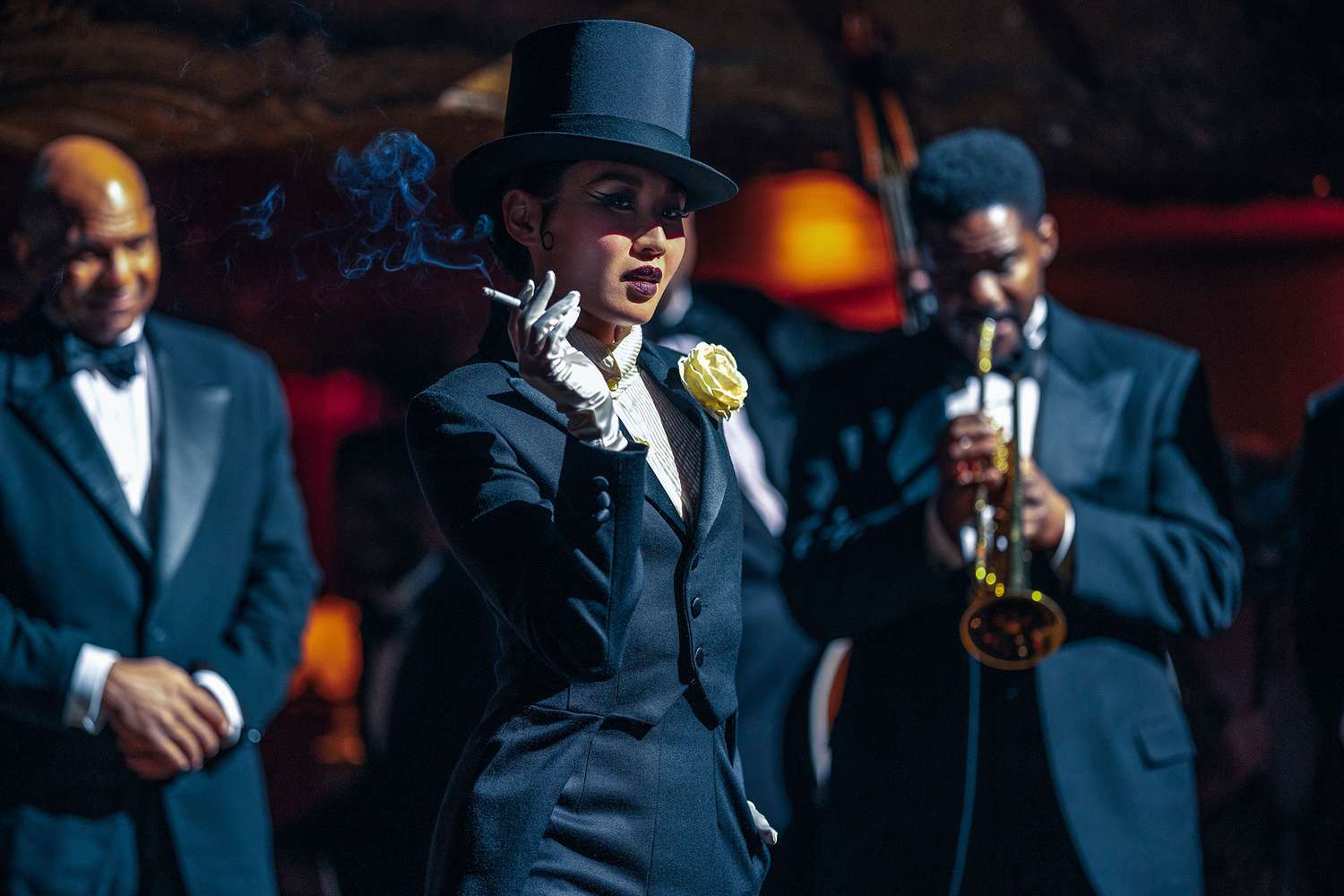
It would be inappropriate to glow and gush over Babylon without at least honestly critiquing some of the things it doesn’t quite deliver on. For me, the film lacks a real central character, leaning heavily into the Many Torres role emotionally but having large tracts of screentime absent his presence. This is a problem because while he’s not there, he’s not growing as a character for the viewer. Similarly, when the film focuses on Margie Robbie’s character or that of Brad Pitt, it’s to the detriment of the others. This unevenness does make the emotional depths of Manny Torres’ journey to the end of the film somewhat ambivalent, and I never quite got the kick from this aspect of the film I’d have liked. That said, Diego Calva’s performance is excellent, but I think Chazelle’s script could have perhaps leant more into trying to tell one character’s story rather than three. Robbie and Pitt are always watchable, but given we start and end the film with Calva’s character, having him vanish for a lot of the film to spend it with Pitt and Robbie (perhaps more of a commercial decision?) undercut a lot of the emotional motivation to invest in any of them.
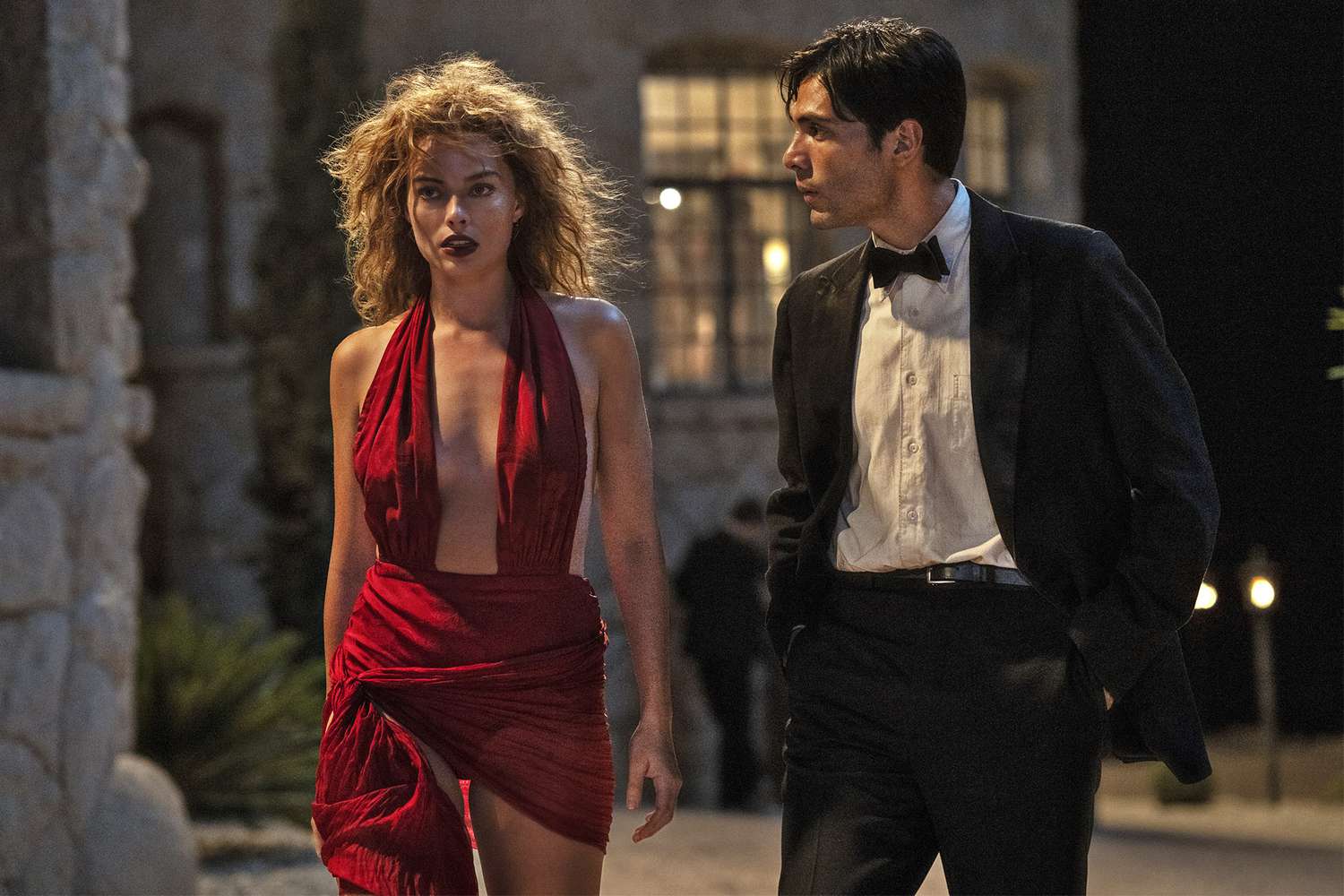
Somewhat hypocritically, the film really is just too long. I know, I know, I said I could watch another hour of this thing before clocking out, but for the average viewer not as invested in Old Hollywood Babylon will be quite a chore to sit through in one viewing. There’s a lot of information thrown at the viewer almost all the time and there is rarely a breath taken to let you sit in the moment, before you’re whizzed onto the next. Discombobulating only works in certain places and not for the entire length of a film (although Bazz Luhrmann has sure made a career out of it) and as much as I appreciated the zeal with which this time period and these characters were presented, the onslaught felt a little too obnoxiously aimed at film fans rather than general audiences, and that in itself felt inauthentic. A love letter to Hollywood should speak to everyone, not just those of us who’ve watched a lot of silent movies. It can be done (Chaplin), and done well (The Artist).
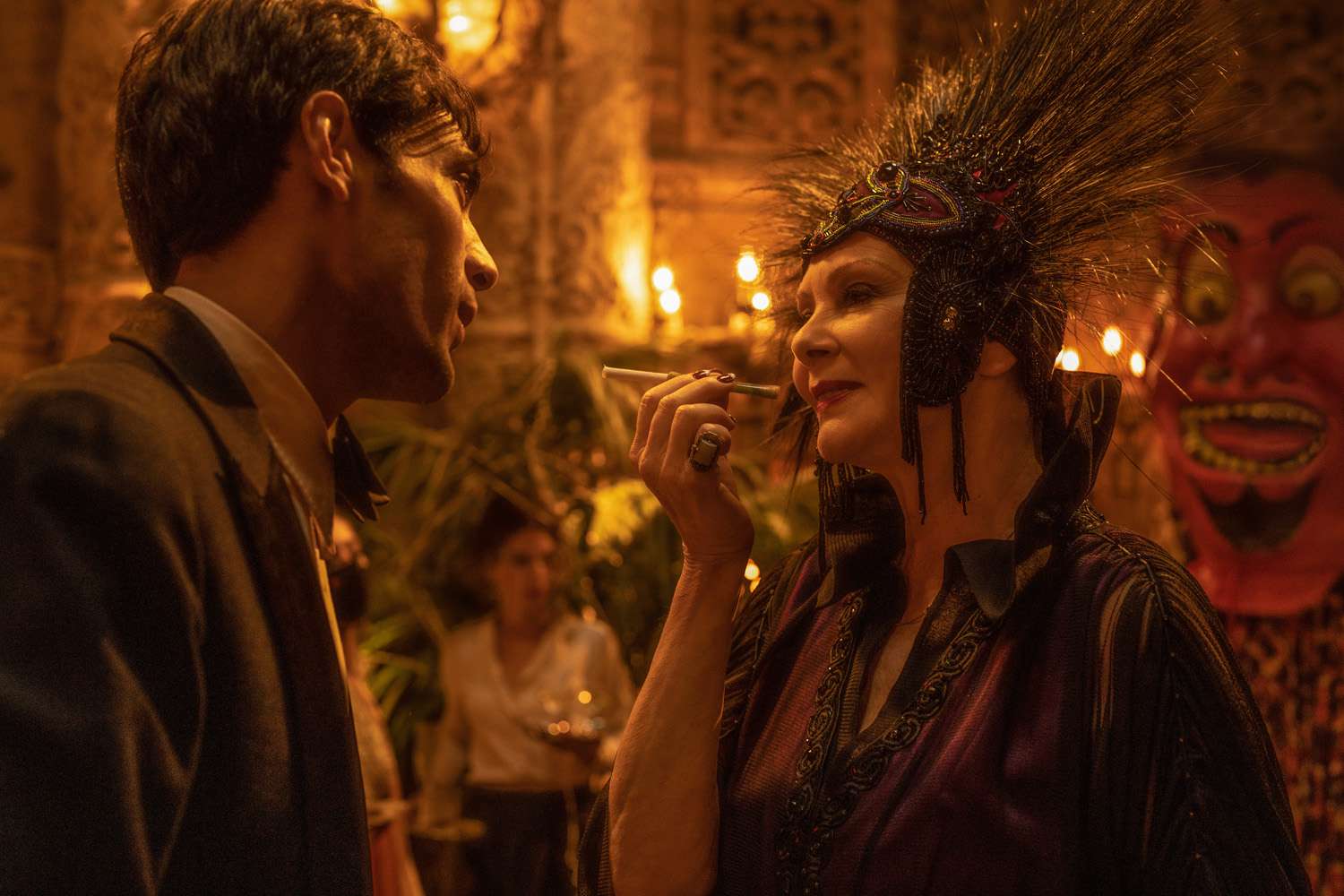
But look: Babylon’s frenetic pace and jam-packed Easter-egg laden tableau of Hollywood is just too much of a good thing for me to pass up. The production design is spec-tacular, from lavish costumes, wide-screen landscape photography and action, and both sound and music production that will make your ears beg for mercy. A thunderous avalanche of sound and vision for a modern age, about an olden age, and I’m here for it. Much of the credit to the film’s largesse being digestible is the fantastic editing by Chazelle regular Tom Cross (Whiplash, La La Land), who somehow manages to depict the debauched, orgiastic lifestyles of the rich and famous (and not-so-famous) in a way that both draws us into this heady world and also repulses us simultaneously, and keeps a solid foot-to-the-floor pace going for the entirety. That’s not to say he has a cut every half-second, but the pacing of each characters arc and the sumptuous set-pieces of Hollywood’s production-line methodology are in absolute lock-step for dramatic effect, winsome nostalgia and Pitt and Robbie angling for award season glory.
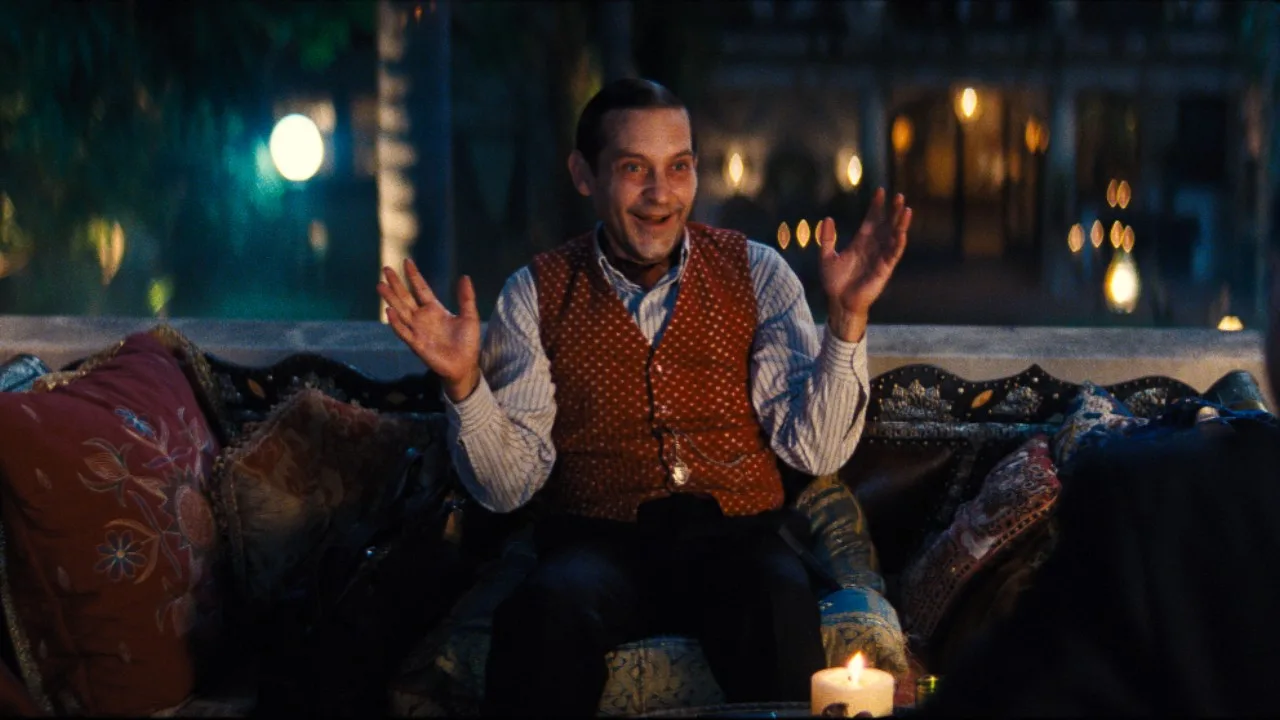
There’s obsession, decadence, opulence and vanity aplenty in Babylon, both in front of and behind the camera, with Damien Chazelle going all “everything but the kitchen-sink” on us. Sexy, violent, operatic at times, and layered with pretension and artifice, Chazelle has replicated Luhrmann’s Moulin Rouge aesthetic, mixed it with a hint of LA Confidential, and transplanted it into the jazzy 1920’s Los Angeles at the height of the silent film boom, replicating Old Hollywood and the legendary studio system in a way I’ve not felt quite so viscerally in years. Pitt, Robbie and Calva are superb in their respective roles, the supporting cast of blink-and-miss-them cameos and A-listers is both amazing and remarkably on-point for a film about Hollywood excess, and the film looks and sounds an absolute treat. As I mentioned, I adored this movie for the nostalgia bait it represents for me, but I would caution casual viewers going in expecting some kind of serious introspection on an industry beset with self-interest at heart. There’s no introspection here: just a love of what Hollywood represented, and perhaps a melancholy of what we’ve lost with the onset of technology “ruining” some of the creative purposes filmmakers had at the time. In any case, I loved Babylon and I cannot recommend it highly enough for folks interested in Hollywood history. Even one written like the E7th note on a violin; it screeches and squawks and feels like an acid trip just exploded in your brain, but it’s fun, fast-paced and filled with ferociously loving warmth for itself.

